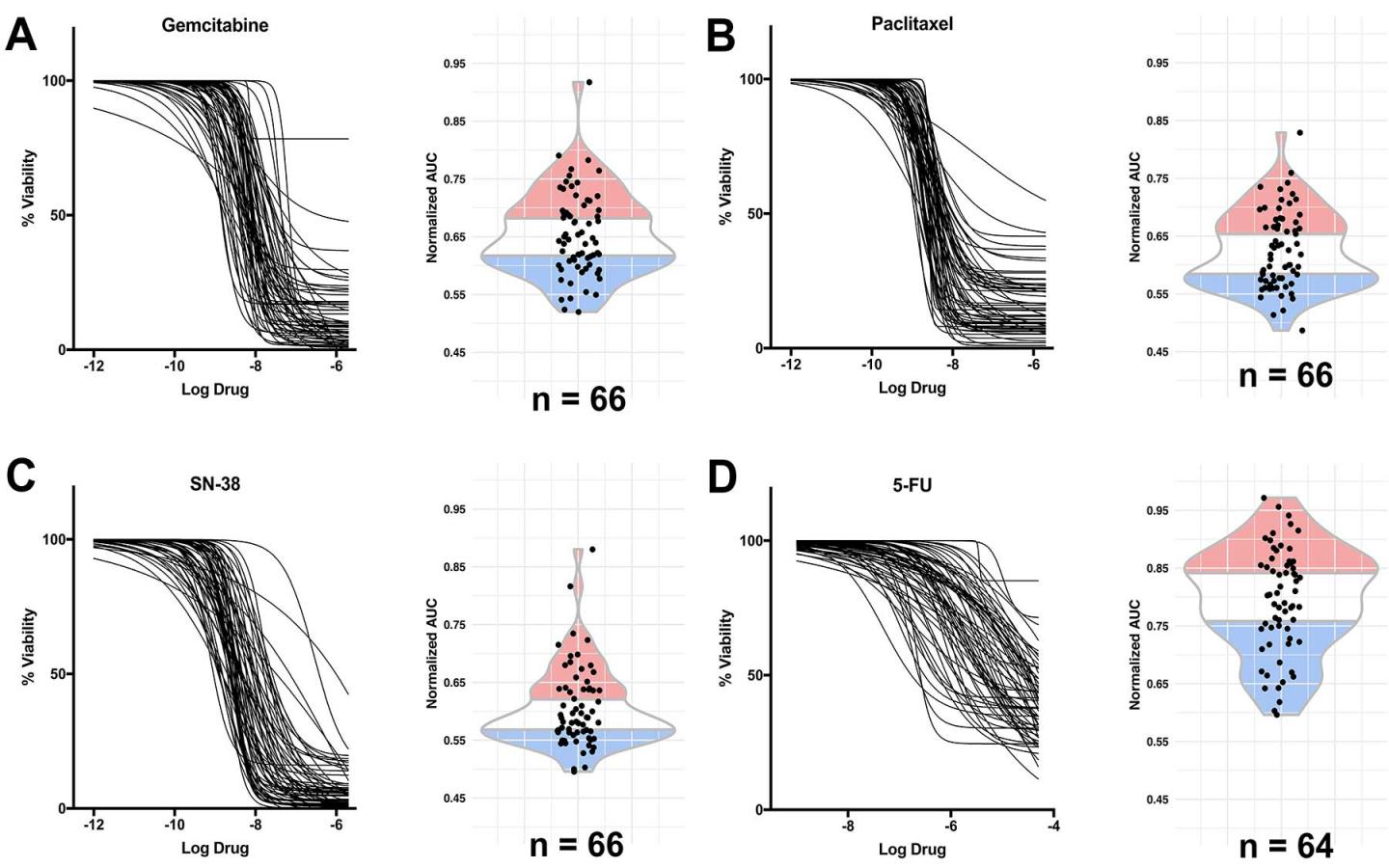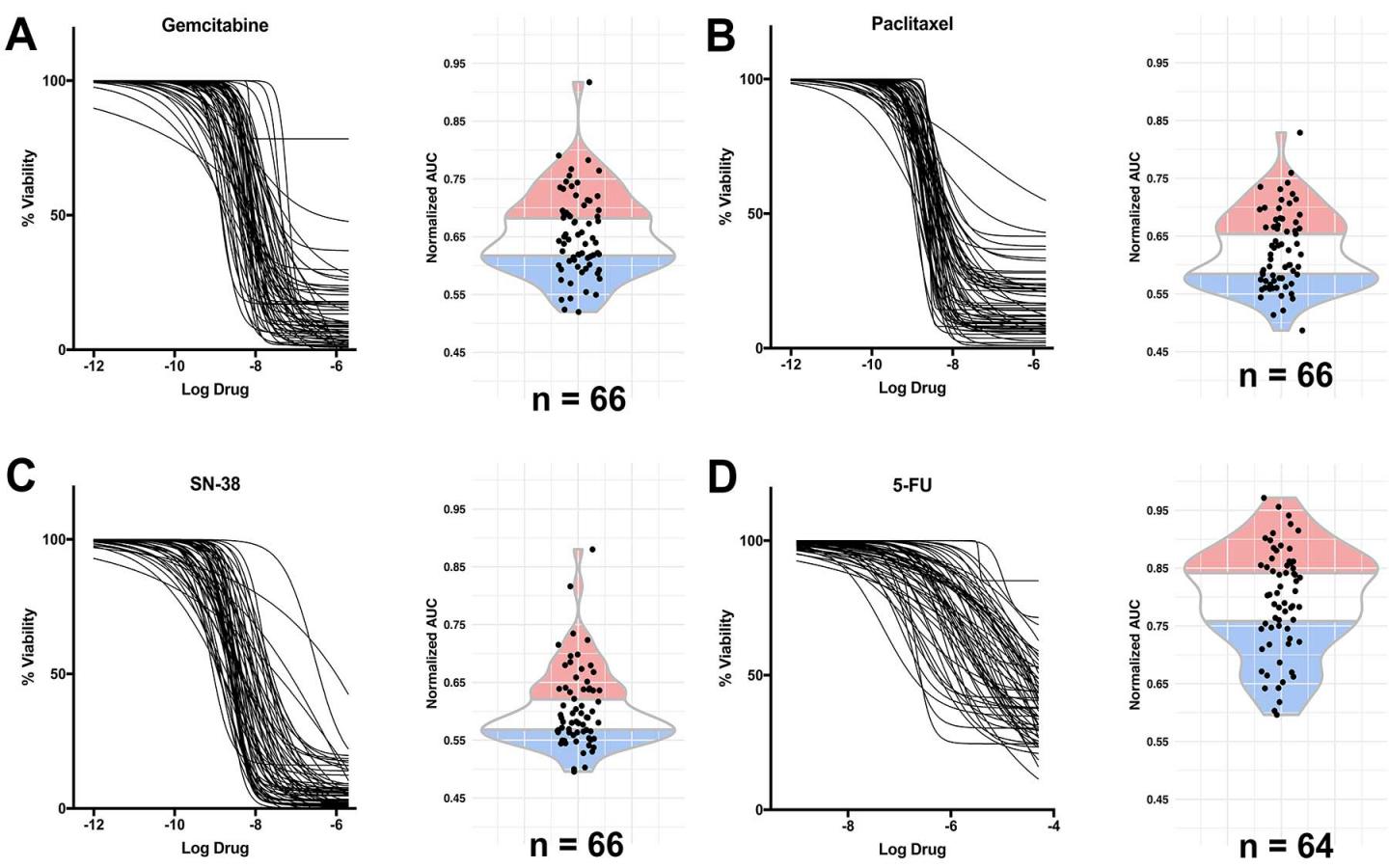
Credit: Tuveson Lab, CSHL
Cold Spring Harbor, NY — Patient-derived organoids, hollow spheres of cells cultured from tumors, can quickly and accurately predict how patients with pancreatic cancer respond to a variety of treatments, facilitating a precision-medicine approach to the deadly disease.
That is the conclusion of an international team of researchers led by David Tuveson, Cold Spring Harbor Laboratory (CSHL) Professor and Chief Scientist for The Lustgarten Foundation.
"We've been able to identify an approach to prioritize treatment strategies for pancreas cancer patients, with the goal of giving them the best shot at survival and the best shot at a good quality of life," says Dr. Hervé Tiriac, a researcher in Tuveson's lab and first author of a paper reporting the findings.
With only 8 percent of patients surviving 5 years beyond their diagnosis, pancreatic cancer is one of the deadliest cancer types. Currently, surgical removal of the cancerous tissue is the only effective treatment, but because the disease progresses so quickly, only 15 percent of patients are eligible for the procedure. Doctors can treat the symptoms of surgery-ineligible patients with drugs or chemotherapy. But patient response is highly varied, and there is no good method to determine which treatment is best for any given patient.
Because so few patients have their tumors surgically removed, obtaining enough high-quality samples of pancreatic cancer has been challenging. While some methods for modelling cancer exist, they are either not very representative of the disease (cell lines), or they take several months to grow (xenografts).
Several years ago, Tuveson recognized that organoids could significantly improve research into the disease. Aside from taking only as little as six weeks to grow, a major advantage of organoids is that they can be derived from patients with even very advanced pancreatic cancer, using tiny biopsies.
Today in Cancer Discovery, Tuveson's team reports on their findings from a library of 66 organoids derived from pancreatic ductal adenocarcinoma (PDAC) tumor specimens at various stages of the disease. The researchers demonstrated that the organoids provide an effective precision-medicine "pharmacotyping," or drug-testing, pipeline. To do this, "we would culture the organoid from the patient's cancer and then test all possible standard-of-care drugs as well as experimental drugs," Tiriac explains. The team assessed RNA levels in individual organoids – a way to measure gene activity — to determine gene signatures that predict sensitivity to the five chemotherapies administered to pancreatic cancer patients. Three of these signatures correctly identified large numbers of patients who had responded to these drugs, and showed that responding patients lived much longer before the cancer progressed. "Therefore, the signatures should enable physicians to choose the correct chemotherapy for pancreatic cancer patients for first-line treatment," Tuveson says. Since many of the organoids that did not respond well to chemotherapy instead were sensitive to a variety of investigational drugs, patients who lacked the sensitivity signatures "might instead more quickly be treated with experimental agents," he adds.
Tuveson and his team plan to further refine the gene signatures through additional experiments, and to test in clinical trials the signatures' ability to predict the improved responses of pancreatic cancer patients.
###
Funding: Lustgarten Foundation; National Institutes of Health; National Cancer Institute; V Foundation; Stand Up to Cancer; Precision Medicine Research Associates; SWOG ITSC; Pancreatic Cancer Action Network-AACR; State of New York; Concetta Greenberg in memory of Marvin S. Greenberg, M.D.; AACR Pancreatic Cancer Action Network; ASGE Endoscopic Research Award; Simons Foundation Award; Ontario Institute for Cancer Research; University Health Network BioBank; Ontario Institute for Cancer Research; Ontario Institute for Cancer Research, Canadian Cancer Society Research Institute; Canadian Friends of the Hebrew University; Pancreatic Cancer Canada Foundation; Lebovich Chair in Hepatobiliary/Pancreatic Surgical Oncology.
Citation: Tiriac H et al, "Organoid Profiling Identifies Common Responders to Chemotherapy in Pancreatic Cancer" appears online in Cancer Discovery May 31, 2018.
About Cold Spring Harbor Laboratory
Founded in 1890, Cold Spring Harbor Laboratory has shaped contemporary biomedical research and education with programs in cancer, neuroscience, plant biology and quantitative biology. Home to eight Nobel Prize winners, the private, not-for-profit Laboratory employs 1,100 people including 600 scientists, students and technicians. The Meetings & Courses Program annually hosts more than 12,000 scientists. The Laboratory's education arm also includes an academic publishing house, a graduate school and the DNA Learning Center with programs for middle and high school students and teachers. For more information, visit http://www.cshl.edu
Media Contact
Peter Tarr
[email protected]
516-367-5055
@genomeresearch
Cold Spring Harbor Laboratory – Advancing the frontiers of biology through education and research





